They say that some fishing enthusiasts in Quebec start to feel that urge when the trout season opens near the end of April after the waters are free of ice. The nervous urge and other symptoms are said to be all the more pronounced when the eager fisherman lives in a big city like Montreal for example, far from the forest and translucent lakes where fishies glide happily through their watery world.
“When can I find some time to go fishing?”, might ask our hypothetical Montreal fisherman crammed in the commuter-filled subway thinking of his (or her) busy schedule, discouraged. That’s when the following crazy idea might emerge: what if I went fishing right here in the city, in the St. Lawrence River, under the Jacques-Cartier Bridge or in the Old Port? Montreal is an island in a majestic river after all.
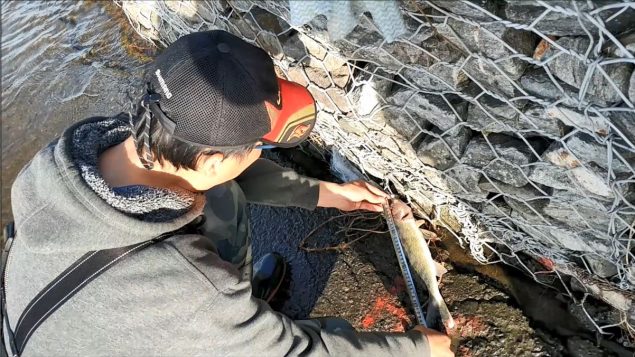
A fisherman mesures the walleye he just caught in parc Dieppe, on a peninsula facing Montreal’s Old Port. Photo: RCI/Marie-Claude Simard
Some people say they would starve rather than eat a fish from the polluted waters around Montreal. Rumours of two-headed creatures deformed by contaminants and swimming in the St. Lawrence have been going around for decades.
And there was that sewage dumping a few years ago…
On the other hand, urban fishing is undeniably a growing pastime in the province of Quebec. Montreal city parks near the water encourage and promote fishing. City kids are initiated to urban fishing through governmental programs. Early in the morning and at the end of the day, also on weekends, on the peninsula of Cité du Havre or other parks near water, many fishermen are casting their line in the St. Lawrence, eager to bring back home some food.
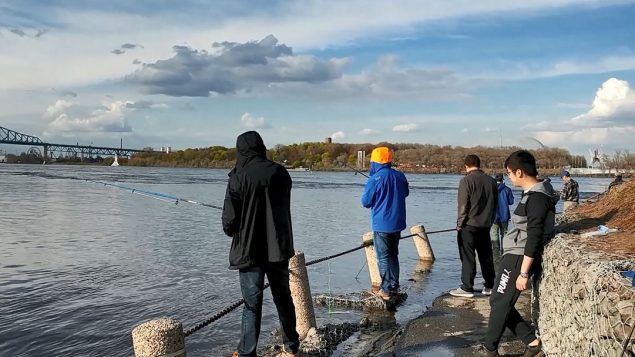
Many fishing enthusiasts cast their line in parc Dieppe. Photo: RCI/Marie-Claude Simard
So how do we separate myths from reality?
No-one is sure if a two-headed bass has ever been found in the area but some scientists have a definite answer to whether the fish near Montreal are good to eat.
“The fish in the St. Lawrence near Montreal is excellent!” For the general population, there’s health benefits to eat it, as long as you respect the recommended amounts per month, he adds.
We went fishing in parc Dieppe in Montreal. Watch our video!
There’s a consumer’s guide
Mr. Laliberté and his team are responsible for monitoring the level of toxic substances in the flesh of fish in the waters of Quebec. In collaboration with the Health and Wildlife Departments, they put together the Guide de consommation du poisson de pêche sportive en eau douce (consumer’s guide to eating freshwater sport fish).
Anyone who has questions about fish toxicity can consult this guide online (currently in French only) before tossing their line into the water. Analyses are conducted at more than 1200 sites across the province and target about 40 species.
Eight meals a month
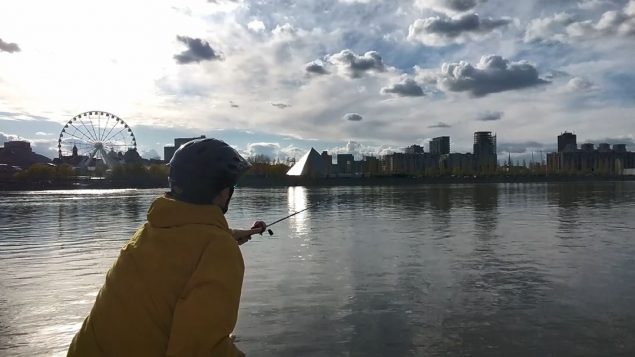
Some people ride their bicycle after work, or take the metro, even a cab, to go fishing in parc Dieppe. Photo; RCI/Marie-Claude Simard
According to the guide, the main fish found in the St. Lawrence River near Montreal – bass, walleye, pike, yellow perch, catfish – can be safely consumed, at a rate of 8 meals per month. The highest frequency in the guide! The recommended portion per meal is 230 gr. So, if you’re a light eater, you can have it even more often.
Not only they are healthy to eat, they are better in some cases than fish of the same species living in wilder areas of the province, far from urban pollution.
How is that possible?
The recommendations in the guide are based on the mercury content found in fish flesh. However, the levels of the toxin are no higher in the fish in the metropolitan area waters than those in less urbanised areas.
Denis Laliberté explains that the main source of mercury comes from atmospheric pollution. With the rain, it ends up in streams, rivers, and lakes. No region is immune to this phenomenon.
“People think that because they are in a wild and remote environment, the fish is very very clean and very free from contaminants. A very big walleye from the north can be much more contaminated than one from the St. Lawrence river.”
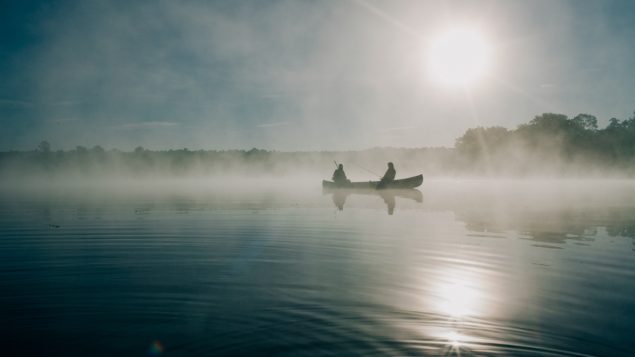
Photo: Ravi Pinisetti/Unsplash
size and age matter
In addition, because of the heat, fish of the same species grow much faster and don’t live as long in waters around Montreal than in the more northern lakes and rivers. Age and size are related to the level of toxicity.
” A walleye can live 6 or 7 years in the St. Lawrence near Montreal. But up north, in Chibougamau, it can live 20 years, explains Mr. Laliberté. As a result, the Montreal fish are exposed to mercury for a much shorter period of time”.
What about the sewers?
Consumers are not only preoccupied by the level of mercury in the water. Pollution caused by discharges of sewers, wastewater of all kinds and multiple detritus is also a concern.
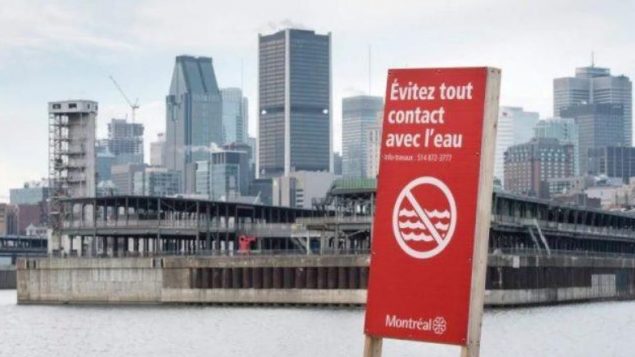
Montreal sign-“Avoid all contact with the water” .In 2015, Montreal dumped 8 billion litres of untreated wastewater into the St. Lawrence River over the space of a week in order to repair parts of its sewage system. Photo: CP/Paul Chiasson
But according to the specialist, organic contaminants − that can be found in ponctual waste water dumpings for example − don’t end up in the edible part of the fish, the flesh.
“These components love fat, he says. Walleye, bass and pike that we find in the St. Lawrence aren’t fat fish, there’s less than 1 percent of fat in their flesh. The organic contaminants will end up in their abdominal cavity.”
“People should avoid eating the organs like the liver. We also recommend to prepare filets without the skin.”
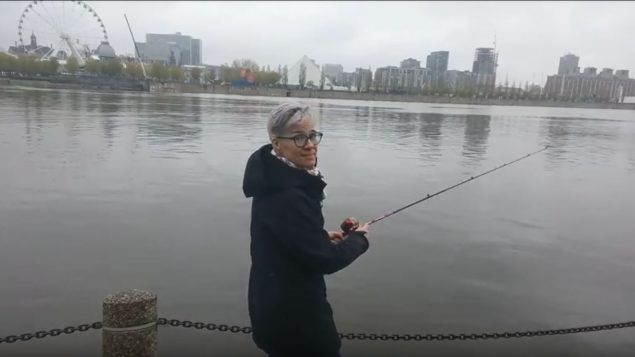
We tested the spot in parc Dieppe. No luck this time! Photo: RCI/Marie-Claude Simard
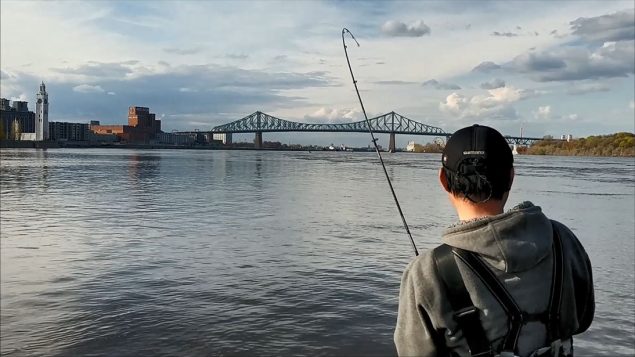






For reasons beyond our control, and for an undetermined period of time, our comment section is now closed. However, our social networks remain open to your contributions.